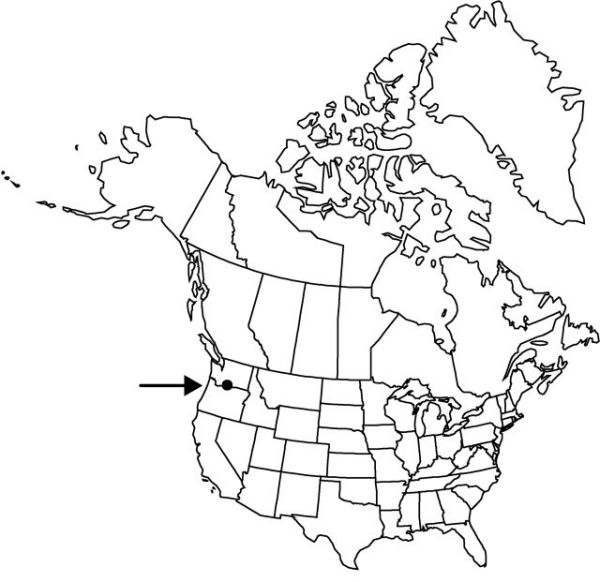Sisyrinchium sarmentosum
Erythea 3: 121. 1895.
Herbs, perennial, cespitose, green to olive green when dry, to 3.2 dm, not glaucous; rhizomes scarcely discernable. Stems simple, 1.7–2.8 mm wide, glabrous, margins entire, similar in color and texture to stem body. Leaf blades glabrous, bases not persistent in fibrous tufts. Inflorescences borne singly; spathes green, glabrous, keels entire; outer 27–48 mm, 14–17 mm longer than inner, tapering evenly towards apex, margins basally connate 3–5 mm; inner with keel evenly curved, hyaline margins 0.2–0.5 mm wide, apex obtuse to acute, ending 0.2–2.3 mm proximal to green apex. Flowers: tepals pale blue, bases yellow; outer tepals 10–14 mm, apex rounded, aristate; filaments connate ± entirely, slightly stipitate-glandular basally; ovary similar in color to foliage. Capsules tan to medium brown, globose, 4–5 mm; pedicel erect to spreading. Seeds globose to obconic, lacking obvious depression, 1–1.5 mm, rugulose. 2n = 96.
Phenology: Flowering early–mid summer.
Habitat: Moist, grassy areas
Elevation: 500–1000 m
Discussion
Of conservation concern.
Sisyrinchium sarmentosum is known from only three or four populations in the Columbia River Gorge area of the Cascade Mountains. The pale blue flowers with rounded apices on the outer tepals set this species apart from others in the region.
Selected References
None.
